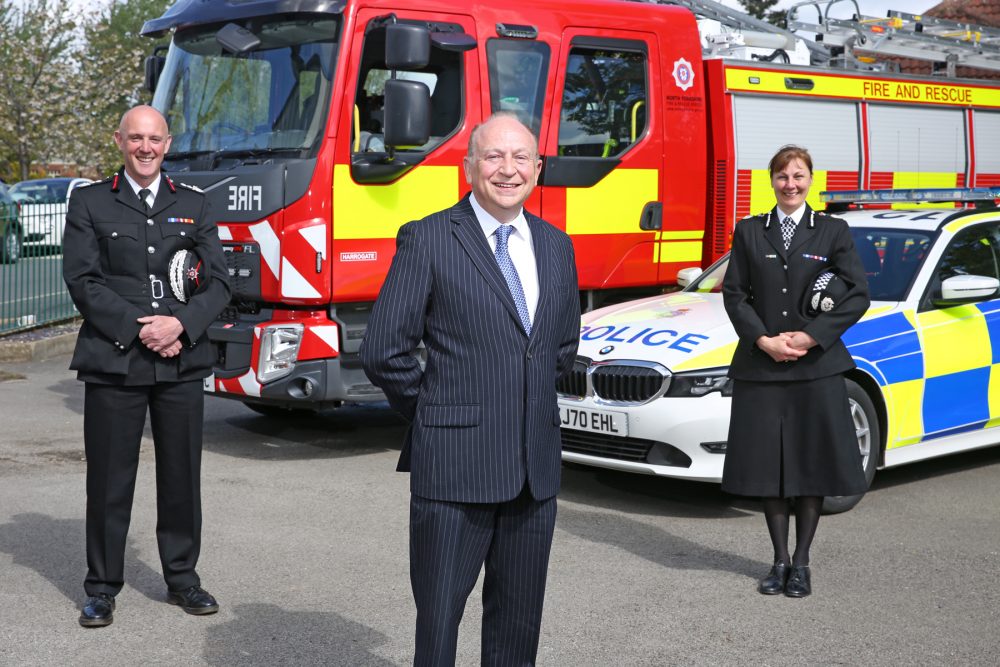North Yorkshire’s new Police, Fire and Crime Commissioner has given his first interview to YorkMix and outlined priorities including county lines drug dealing, rural crime and speed camera vans.
Conservative Philip Allott said he expected to remain “on a rollercoaster getting to grips with the brief” for some months, but added he had already agreed an outline plan with the chief fire and police officers.
In an extensive interview for the YorkMix Radio Late Show with David Dunning he spoke about his background and his plans for both police and fire services.
The first of an extensive list of priorities that Mr Allott outlined was work to improve responses to rural crimes, such as hare coursing, thefts from farms, by strengthening the Rural Taskforce, with more officers.
The commissioner said he would seek to forge closer partnerships with schools to identify children who act as drug couriers and with social services to identify vulnerable people whose homes may be used as county lines bases.
Probe into traffic policy

Signalling a determination to take his oversight of both emergency services in a different direction to that of his fellow Tory predecessor Julia Mulligan, Mr Allott said there were “big concerns” over camera vans, which have multiplied since they were first introduced in 2011.
Despite the force’s insistence the vans are deployed accident black spots, widespread concerns have persisted for a decade that they are being sited at places to maximise the revenue they generate rather than improve safety.
Mr Allott said: “People say the camera vans are in the wrong locations. People say their village doesn’t get a camera van. People say there are other solutions.”
He declined to elaborate on the concerns, but added: “There will be a rethink in terms of how that is handled and that will be something that involves a consultation process.”
He also pledged to put the needs of victims and vulnerable people above others, saying talks were under way about improving the connections between North Yorkshire and York’s CCTV coverage.
He said actions to improve safety for women, both on the street and domestically, would be pursued.
Sorting out 101

Picture: Sarah Caldecott
Another of the issues he highlighted was the state of the 101 service. He says it’s become a victim of its own success but the money is there to improve and upgrade it.
“So quite often somebody is trying to get through with details of a rural crime that’s in progress and somebody else is blocking the line by asking what time the pizza shop closes.
“We need to educate the public about what the 101 number is actually for.
“There’s also perhaps some screening process that needs to go on there too.”
